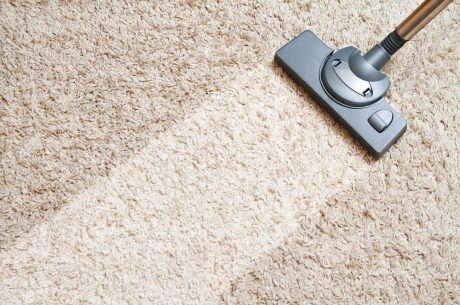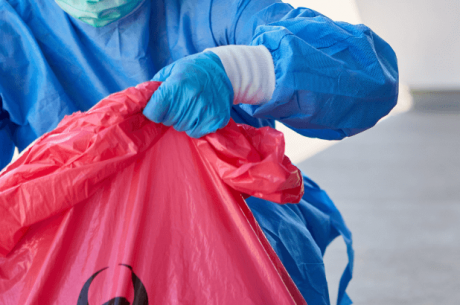Biohazard cleaning is a critical process. It involves the removal, cleaning, and disinfection of materials that pose a health risk.
These materials, known as biohazards, can include bodily fluids, blood, and other potentially infectious substances. They can be found in various situations, from crime scenes to contaminated vehicles.
The handling of biohazards is not a task to be taken lightly. It requires specific knowledge, skills, and supplies to ensure safety and compliance with health regulations.
In this article, we delve into the world of biohazard cleaning. We’ll explore what it entails, why it’s important, and how it’s done.
Whether you’re a facility manager, a cleaning professional, or simply someone seeking knowledge, this guide will provide valuable insights. Let’s get started.
Understanding Biohazards
Biohazards refer to biological substances that pose a threat to human health. These can include bacteria, viruses, and toxins.
They can be found in various forms like human blood, bodily fluids, and other potentially infectious materials.
Biohazards can also originate from animals. For instance, bird droppings and rodent waste can carry harmful pathogens.
Understanding what constitutes a biohazard is the first step in ensuring proper handling and disposal. This knowledge is crucial in preventing potential health risks.
The Importance of Biohazard Cleaning
Biohazard cleaning is not just about cleanliness; it’s about safety and health protection.
Exposure can lead to serious illnesses ranging from bacterial infections to viral diseases.
Proper cleaning reduces the risk of exposure and prevents the spread of diseases in homes, workplaces, and public spaces.
In essence, biohazard cleaning is a crucial part of maintaining a safe and healthy environment.
When Do You Need Biohazard Cleaning?

Biohazard cleaning is needed in various situations. It’s not just for crime scenes or hospitals.
You may need it after a home accident involving blood or bodily fluids. Or, in the aftermath of a natural disaster like a flood.
Workplaces, especially in the healthcare and food industries, also require cleaning. This is to ensure safety and prevent disease spread.
Here are some situations that may require professional cleaning:
- Accidents involving blood or bodily fluids
- Unattended death or suicide
- Hoarding situations
- Animal waste or remains
- Chemical spills
- Infectious disease contamination
- Natural disasters like floods or fires
- Illegal drug production, like meth labs
Personal Protective Equipment for Biohazard Cleaning
Biohazard cleaning is risky. It exposes cleaners to harmful pathogens.
To ensure safety, Personal Protective Equipment (PPE) is crucial. It acts as a barrier between the cleaner and the biohazardous materials.
PPE includes items like:
- Gloves
- Goggles
- Face shields
- Respirators
- Protective suits
Each piece of PPE is important. It protects a specific part of the body. Always wear full PPE during cleaning.
Steps in the Biohazard Cleaning Process
Biohazard cleaning is not a simple task. It involves several steps. Each step is crucial to ensure complete disinfection.
The first step is to assess the scene. This helps to understand the extent of contamination. It also helps to plan the cleaning process.
Next, cleaners wear their PPE. This is to protect them from potential harm.
The actual cleaning then begins. This involves removing visible contaminants. Cleaners use biohazard cleaning supplies for this.
After cleaning, disinfection follows. This step kills pathogens that are not visible. EPA-registered disinfectants are often used.
The final step is verification. This ensures that the area is completely clean. It involves testing surfaces for remaining materials.
Remember, each step is crucial. Skipping a step can lead to incomplete cleaning. This can pose health risks.
Choosing the Right Cleaning Supplies

Choosing the right biohazard cleaning supplies is crucial. It ensures effective cleaning and disinfection.
Supplies should include personal protective equipment. This includes gloves, masks, and protective suits. These protect cleaners from potential harm.
Cleaning agents should be EPA-registered. These are proven to kill pathogens. They ensure effective disinfection.
Here are some supplies you might need:
- Bags for waste disposal
- Disinfectant wipes and sprays
- Absorbent materials for spills
- Sharp containers for sharp objects
Remember, using the right supplies is key. It ensures safety and compliance with health regulations.
Professional Biohazard Cleaning Services vs. DIY
Biohazard cleaning is not a typical DIY task. It involves risks that require professional handling.
Professional services have trained technicians. They understand the risks and follow strict protocols. This ensures safety and compliance with regulations.
On the other hand, DIY cleaning can be dangerous. Without proper training and equipment, you risk exposure to harmful substances.
Understanding Biohazard Car Cleaning Costs

Biohazard car cleaning costs can vary. Several factors influence the final price.
The type and extent of contamination play a role. More severe cases require more resources and time. This increases the cost.
The location and size of the vehicle also matter. Larger vehicles or hard-to-reach areas may increase the price.
In conclusion, it’s best to get a quote from professionals. They can assess the situation and provide an accurate estimate.
Legal and Safety Considerations in Biohazard Cleaning
Biohazard cleaning is governed by strict regulations. These are set by bodies like OSHA and the EPA.
Non-compliance can lead to legal implications. It’s crucial to follow all guidelines and standards.
Safety is another major concern. Improper handling can pose health risks.
Ensuring Safety and Compliance
Biohazard cleaning is a complex task. It requires knowledge, skills, and the right supplies.
Hiring professionals is often the safest choice. They ensure compliance with health regulations.
Remember, the goal is to restore safety. This is crucial in homes, workplaces, and public spaces.
In the end, understanding biohazard cleaning helps us make informed decisions. It’s about protecting our health and our communities.
For expert biohazard cleaning services in Alsip, contact PuroClean Disaster Mitigation today!




 PuroClean Disaster Mitigation
PuroClean Disaster Mitigation